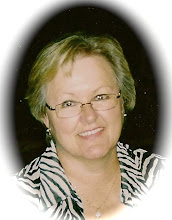Now, let’s move on to the other side of the process of decision-making. We will make even better decisions when we learn to look into our heart for confirmation after we have asked the head questions. Most people make their decisions emotionally and then look for logical reasons to justify the decision they already made. It works better when we involve the feelings and the head simultaneously. The second set of questions is: “Does My Decision Show I Am Honest with Myself, Trust My Intuition, and Deserve Better?”
We need to make decisions in integrity, that is, telling ourselves the truth. The consequences, down the road, of a decision which is based in illusion will generally be much harder to deal with than dealing with the illusion now. We need to ask ourselves what are our beliefs about (1) our integrity, (2) our intuition, and (3) our insight into our own worth. The more aware we are of our own character, the more often we make better decisions. We will only use those portions of our character we think have real value for us in making our decisions, so our decisions depend on how we view our character and they also reveal our character.
One way of finding the truth is by identifying the illusion, or fiction, we would rather believe and then looking for it’s opposite. If we can’t see the illusion our friends and family can help us see it if we can get our ego out of the way. Our challenge is to discover the truth; once we see the truth the decision is obvious.
How do we learn to trust our intuition? Our intuition is our unconscious knowledge based on our personal experience and our “gut” reactions to events in the moment. Again, look back at decisions we made in the past and see how we felt at the time we were making them. Did we force the issue? Did we feel anxious or enthusiastic? Did it feel clear or confused? Did we feel stressed or peaceful? How did those decisions work out?
Most of the negative fear responses freeze us. We then force a decision that we are not happy with because we are afraid. We need to ask “What would I do if I were not afraid?” Feeling the fear is okay, but we need to learn to acknowledge it, see where it comes from and then move ahead with the decision that is not fear based. Decisions made with enthusiasm tend to have a better outcome that those made in fear. If the decision doesn’t feel right, it probably isn’t. Our intuition is working; we just need to pay better attention to it.
Next week we will cover the last part of this question: Does my decision show I deserve better? Now there’s a can of worms.
Debby Riddick
